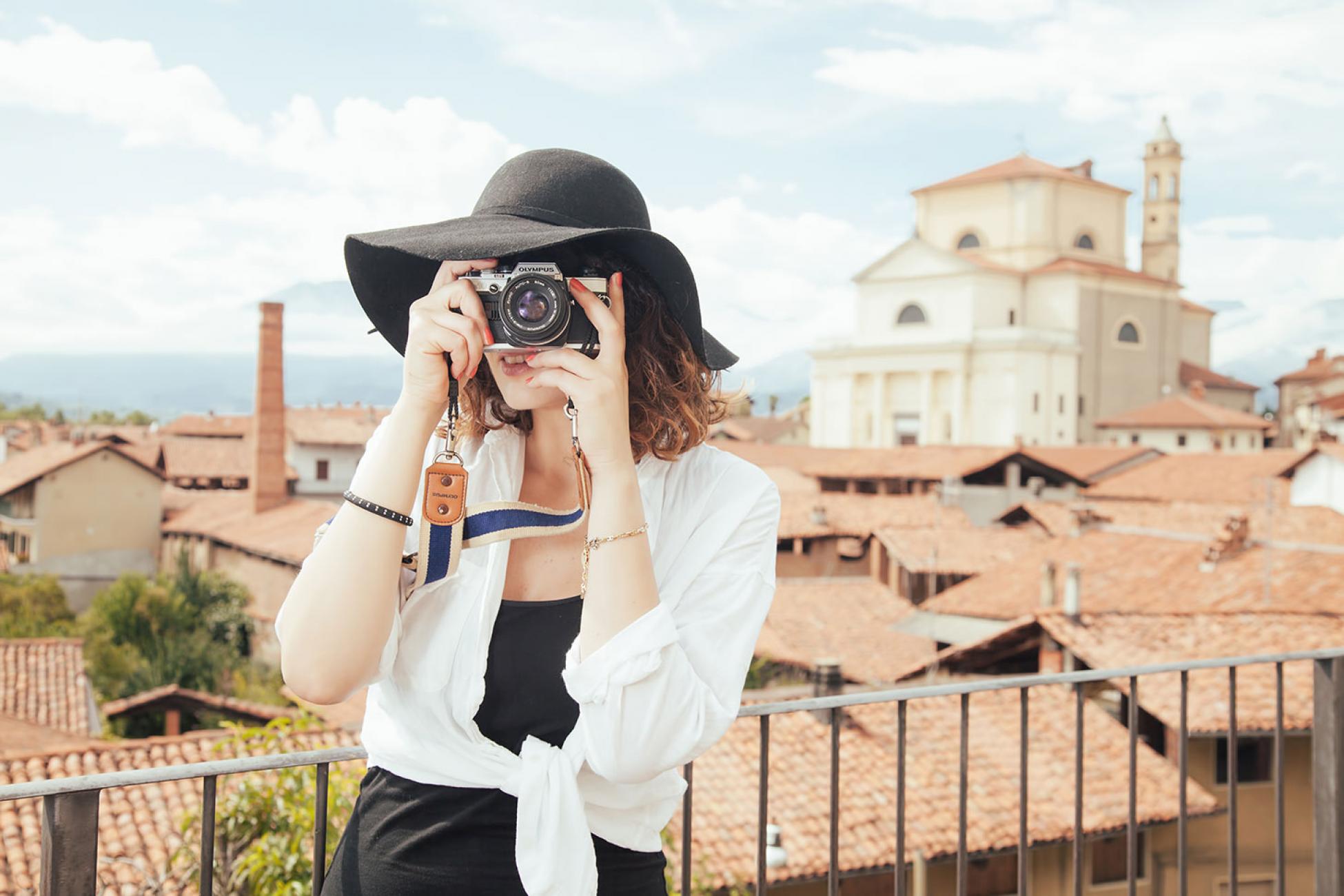If you Google, “travel photography tips,” you’ll get endless advice on how to centre your photos, the best kind of equipment to use and what makes for interesting subjects. In fact, you can find a ton of these tips on our website.
But what about the most important travel photography guidelines—like how to treat your subjects with respect, use your photos to cross cultural boundaries and share your story?
Whenever possible, ask permission before taking photos or introduce yourself afterward.
Photographer Allan Lissner has some great advice on this topic. Although opinions vary from photographer to photographer, at the end of the day, it's best to go back to the golden rule: how would you feel if you were in your subject's shoes? What if someone came to your hometown, started taking photos of you, walked away without saying a word and then you later found those photos on a blog or a website? You might be okay with it. But you might not be.
Introducing yourself to subjects (either before or after taking a photo) can open cultural doors and allow you to interact on a level that wouldn't otherwise be possible.
How you share your photos is just as important as the moment you take them.
While the 2,568 photos you took on your overseas adventure could never even begin to tell the story of your experience, you’re going to have an even harder time doing so when you try to narrow them down to 200 photos. Because chances are, you’re not going to post all 2,568 photos from your three-month journey through Southeast Asia or six-week volunteer project in Tanzania on Facebook.
So how do you select the pictures you want to share with your friends and family?
Before you post a curated selection of travel pictures to Facebook, Flickr or any other online medium, ask yourself if the photos truly represent your experience. Do the majority of the photos feature you holding an African child—even though your volunteer project focused on administrative work for a local NGO? Or if you were backpacking through a developing country, did you include shots of cows eating garbage from parking lots, but exclude pictures of the shiny new mall that you shopped at? Overall, determine whether your photos perpetuate stereotypes or serve to educate and enlighten viewers.
Captions matter, too.
It’s not 1997. Let’s face it—the Internet is not a bubble and people all over the world have access to it. Before writing captions, consider how your subjects would feel if they read them—because they just might.
Similarly, if you were travelling for work-related purposes, while some of the photos you took may be ideal for internal reports, they may not be appropriate to share with friends. For example, if you were interning at HIV/AIDS clinic, think twice before posting a photo of the waiting room; you could be breaching the confidentiality of its users.
This same common-sense approach should apply to captions as well. Did you take a picture of the HIV/AIDS clinic's administrative coordinator and title it "HIV/AIDS Clinic"? You might want to reconsider, because without a proper description, people may assume that the coordinator is a client.
Use photography to educate.
Think you've got some great shots that show meaningful travel? We do, too.
Enter your photos into Verge's Photo Challenge for the chance to win $1000 and have your photos displayed at the Go Global Expos in Boston, Toronto and Montréal.
For other great tips on how to use photography to open doors check out these articles:
More travel photography tips: how to use your camera to open doors; not raise suspicions.
Travel Photography: Telling stories through photography.
Using your camera to open doors.
Add this article to your reading list



